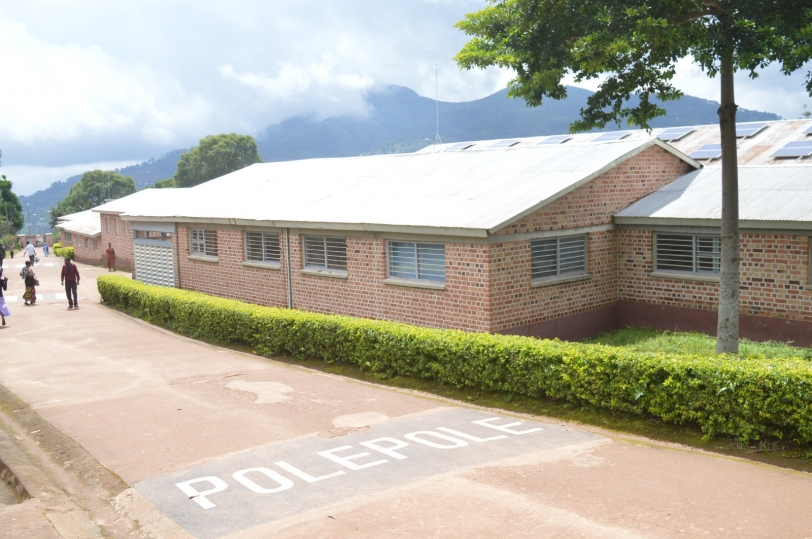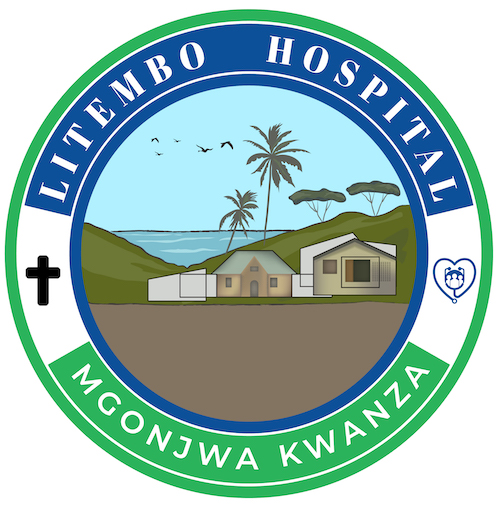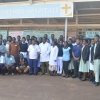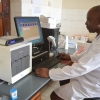
Hospital group has been supporting hospital in Tanzania for many years
from the Clinic Quartet July 2014
Partners have now become friends: for many years there has been close cooperation between the hospitals in the clinic group and the hospital in Litembo, which is located in the diocese of Mbinga in the south-west of Tanzania and cares for around 400,000 people. German equipment is regularly shipped to the African country, and doctors, nurses and technical staff from the clinic group travel to Tanzania just as regularly to familiarize their local colleagues with medical technology and modern treatment methods. In March and April respectively, Dr. Werner Jax, former head physician of the internal medicine department at Marien-Hospital, Monika Dammer, deputy nursing director at St. Elisabeth-Hospital, and Andreas Heidinger, technical director at Marien-Hospital, traveled to Tanzania. Dr. Markus Reidt, head physician of the anesthesiology clinic at St. Sixtus-Hospital, spent two weeks in Litembo. We spoke to him about his impressions
. Reidt: Seven years ago you went to Litembo for the first time. What were you planning to do then? And what was the aim of your current visit?
Reidt: My first stay was mainly about two things: We wanted to introduce anesthesia with oxygen and develop a concept for post-operative monitoring and pain therapy. A brief background: During general anesthesia, the administration of oxygen is important because if the blood is not sufficiently saturated with it, this can lead to permanent brain damage. In Litembo hospital, it was also not yet common practice at the time to monitor patients after an operation and give them pain medication. During my current visit, I wanted to know whether the concepts introduced then are still being used and where there is still room for improvement.
What were your impressions: Are the innovations developed a few years ago still being implemented in Litembo hospital?
Reidt: Fortunately, some things have even improved further, for example anesthesia with oxygen. When we started, the oxygen bottles had to be brought from a long way away. Now the hospital has its own oxygen concentrator, so this anesthesia procedure has become routine. The proportion of regional anesthesia has also increased significantly. Pain therapy is a little different. The will to implement this concept is there. But there is simply a lack of the appropriate medication on the market in Tanzania.
Are there any new projects that will be implemented in the foreseeable future?
Reidt:We are currently considering a new anesthesia machine. The technology imported from Germany is far too complicated and there are no anesthetists in Litembo Hospital, only semi-skilled staff. A device that is easy to use could lead to greater safety. There are anesthesia machines that have been specially developed for third world countries. We will therefore be holding talks with the relevant manufacturers.
In addition, the colleagues who were in Litembo in April brought a mobile ultrasound machine with them. This purchase was made possible by many donors, whom I would like to thank at this point. The mobile device will be used primarily by the gynecologist and obstetrician for diagnostic purposes when he regularly visits the 25 health stations in the diocese. They provide initial care for people. For many people, the journey to the hospital is simply too far or they are too ill to get there. However, there are no trained doctors working in the health stations. This is why the hospital gynecologist visits all the facilities twice a year to examine the women on site. The mobile ultrasound device will provide him with important diagnostic assistance – for example, when patients have cysts or tumors that absolutely have to be treated surgically in hospital.
You are very committed to the hospital in Litembo. What motivates you?
I always see it as an enrichment to get to know another culture. And I am fascinated by African culture, especially by its rhythm of life and the serenity of the people. Tanzanians are at peace with themselves – despite the often very difficult living conditions. This is a counter-model to our hectic everyday life. On the other hand, I am always impressed by how good medicine can be practiced with simple means. And I am happy to make my knowledge and experience available to improve the care of the local people. The people in Litembo show me great gratitude in return. In any case, I always return to Germany as the recipient of a gift.


